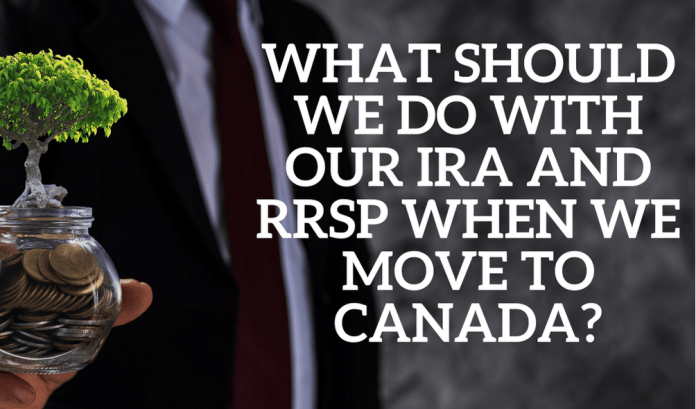Question
Hi Phil
I found your contact information after watching a few videos on your YouTube page. My wife and I are moving back to Canada and have quite a unique situation that I would love to get your ideas on.
Before we were married my wife moved down to the US about 15 years ago. We met shortly thereafter and married a few years later. Now, considering all the political and social unrest down here we’ve decided to move back. We’re trying to wrap up work and hopefully fully retire once in Canada. The move should happen late 2022 or early 2023 depending on how quickly we can find a suitable home. I see you live in Mill Bay. We’ve been there scouting out homes early in the year and although we loved the town, not much for sale at that time. Looks like inventory is opening up a little, so we are planning on making another trip to Vancouver island some time early fall.
I should also mention that I am American and my wife is a dual American and Canadian citizen. We are currently working with a Vancouver immigration attorney to help with my spousal sponsorship. We also have 2 adult children still living in the US.
I will have lots of questions close to our move, but for now I’m really curious about our registered accounts. My wife has an RRSP that she left there after she moved (around $800,000). I have an IRA down here that’s around $1,500,000, although it was much higher before the market pullback.
Based on my research it sounds like I should be planning for my investments well before the move to Canada.
Is there something I should be doing with these accounts before we move? Should we be considering transferring some of the IRA to her RRSP (if that’s even possible), or should we be withdrawing from either plan? I just want to make sure I don’t make any investment or tax mistakes before moving. Other than the IRA and RRSP we don’t have much else in terms of assets other than our house which we will be selling before moving. The house is currently around $1,200,000 and we’ll use move than half of the proceeds to purchase an another house on Vancouver island.
Also, do you know of any mortgage brokers that specialize in helping Americans get mortgages for Canadian properties?
Thank for your time, looking forward to hearing your thoughts.
Sincerely
XXXXX and XXXX
Answer
Hi XXXX and XXXXX
Thanks for the email and congrats on your potential move to the Island and future retirement.
You have quite a bit going on here, so we may need to schedule a proper tax consult. However I should be able to give you some general guidance below:
First, yes, I do have someone that can help with the mortgage. His name is Andrew and you can view an article he wrote for the blog on mortgages here.
With respect to the questions related to the IRA and RRSP you are correct. Proper planning for your investments before moving to Canada is very important.
First, you likely won’t want to convert your IRA to an RRSP and you certainly will not be able to transfer you IRA to your wife’s RRSP. You do have the option of transferring your IRA to an RRSP when you become a Canadian tax resident, however in most cases it won’t be very advantageous. The only real advantage would be possible income splitting in the future. For example, you could transfer your IRA to an RRSP and then in the future when the RRSP converts to a RRIF it can be split with your wife. That being said you will only be able to transfer your IRA to an RRSP to the extent that you have Canadian source income. Considering you’ll be retired upon entry to Canada you’ll likely not have enough income to properly transfer some of the IRA to an RRSP. In addition, considering your wife also has an RRSP that will eventually convert to an RRIF income splitting may be less of an issue.
That doesn’t mean however that you don’t have any opportunities to plan. The tax rules for IRAs and RRSPs are quite different and there are certainly some tax planning ideas to consider.
In most cases, assuming you have a choice, it makes tax sense to pull from the RRIF as much as possible compared to the IRA. That’s because eventually the IRA will be available to be inherited by your children tax free whereas the RRIF will be included in income upon the death of the final spouse. Note however that you will only be required to withdraw funds from the RRSP when it eventually converts to a RRIF at the age of 71. Once that happens your wife will be required to take “minimum distributions” until the account is fully depleted or until she dies and transfers it to you.
Also, assuming you won’t be working while in Canada any extra proceeds from the house should be properly invested to optimize for your cross-border situation considering you’ll be filing both in Canada and the US once you become a Canadian tax resident.
I hope the information above helps and please let me know if you want to book a proper consult.
Cheers
Phil






Great response Phil.
So many Cdn advisors incorrectly recommend the IRA to RRSP maneuver — in my opinion to get their hands on that investment money — when there is little value in doing this. The pension splitting (if they have already moved their 401k funds — which are splittable in canada — to an IRA) is really the only reason that might make sense.
If one is going to pay all that US tax to move the funds to a taxable account, then one should consider converting all taxable US accounts to a Roth before moving.